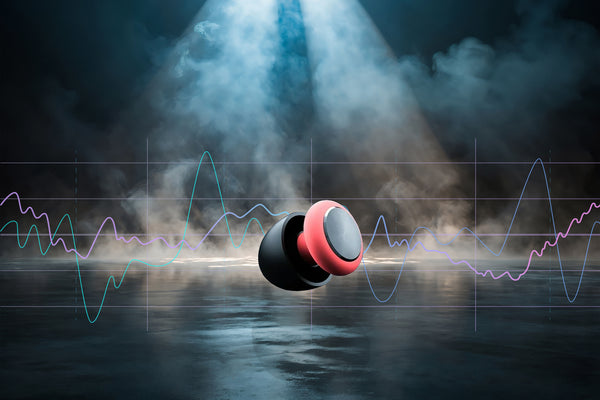Legendary Musicians Who Suffered Hearing Loss: What You Can Learn From Them
The Price of Loud Music: Hearing Loss in Music Legends
Music has given the world some of its greatest legends—but for many of them, it has also taken something in return: their hearing. Decades of exposure to high-decibel concerts, recording sessions, and amplified sound have led many iconic musicians to develop noise-induced hearing loss (NIHL) and tinnitus.
Hearing loss isn’t just a risk for famous artists—it’s a reality for anyone exposed to prolonged loud noise. Here’s what happened to some of the biggest names in music and what you can learn from their experiences.

Pete Townshend (The Who) – “Louder Doesn’t Mean Better”
🎸 What Happened: Pete Townshend, the legendary guitarist for The Who, suffers from severe tinnitus and hearing loss due to years of exposure to explosively loud concerts and studio recordings. He admitted that headphone use in the studio was one of the biggest culprits.
🎧 The Lesson: Even if you’re not on stage, prolonged exposure to loud music—especially through headphones or in-ear monitors—can be just as damaging as live performances.
✅ Protect Yourself: Keep headphone volume under 60% and use high-fidelity earplugs during loud events.

Eric Clapton – “My Ears Are Just Gone”
🎸 What Happened: Eric Clapton has openly discussed his struggles with tinnitus and hearing damage, saying, “My ears are just gone.” Decades of amplified blues rock performances without hearing protection contributed to his condition.
🎧 The Lesson: Tinnitus doesn’t just affect how well you hear—it can also lead to mental fatigue, stress, and difficulty concentrating, making everyday life harder.
✅ Protect Yourself: If you’re a musician or music lover, use filtered earplugs to reduce harmful frequencies while still enjoying the music.
Ozzy Osbourne – “The Ringing Never Stops”
🎤 What Happened: The Prince of Darkness himself, Ozzy Osbourne, has experienced constant ringing in his ears for years. He admitted to years of ignoring hearing protection during his Black Sabbath days, despite performing in extremely loud environments.
🎧 The Lesson: Once hearing damage sets in, it’s permanent. Many musicians don’t realize the damage until it’s too late.
✅ Protect Yourself: If you experience ringing in your ears after a concert, that’s a warning sign. Use earplugs at all times in loud settings.

Chris Martin (Coldplay) – “I Wish Someone Had Told Me”
🎤 What Happened: Chris Martin of Coldplay developed tinnitus in his early 30s due to constant exposure to loud music. He now actively warns younger musicians to take hearing protection seriously and wears custom earplugs at every performance.
🎧 The Lesson: Hearing damage doesn’t just affect hard rock musicians—even softer, melodic music played at high volumes can cause long-term issues.
✅ Protect Yourself: Whether you play classical, rock, or EDM, sound intensity matters more than genre. Use earplugs at all live shows.
What Can You Do? Protect Your Ears Like a Pro
You don’t have to be a rock legend to suffer from hearing loss—but you can learn from those who made the mistake of not protecting their ears.
🎧 How to Keep Your Ears Safe:
- Use Spares high-fidelity earplugs to lower dangerous decibel levels without muffling sound.
- Follow the 60/60 rule – Keep headphone volume under 60% and limit listening to 60 minutes at a time.
- Take listening breaks to allow your ears to recover.
- If you leave a concert with ringing ears, that’s a red flag. Next time, wear protection.
Spares: The Best Way to Protect Your Hearing
Unlike foam earplugs that block out too much sound, Spares use precision acoustic filters to reduce harmful noise while maintaining sound clarity.
🎵 Enjoy music the way it was meant to be heard—without the long-term damage.
Don’t wait until it’s too late. Grab Your Spares today!

